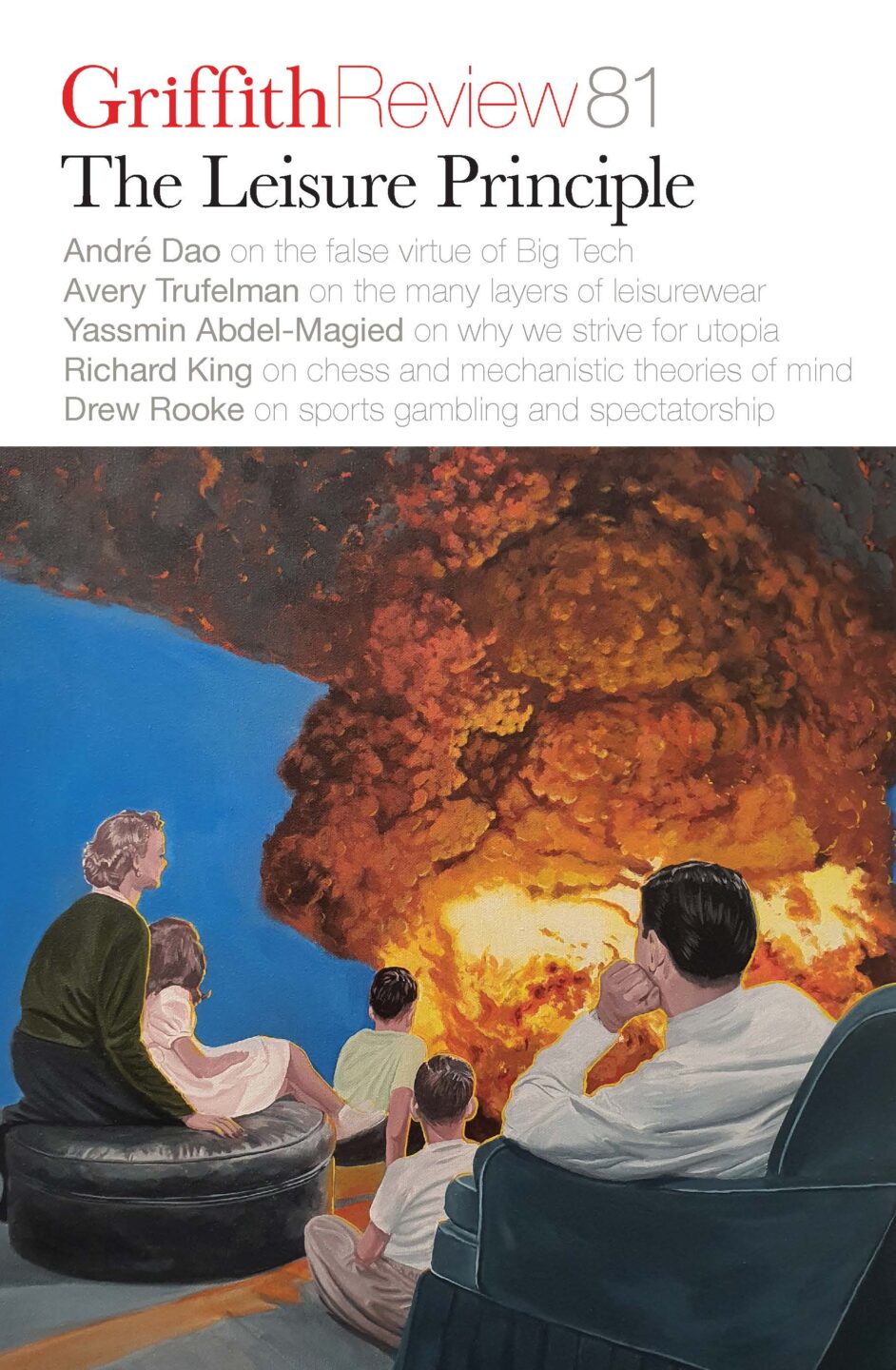Featured in

- Published 20230801
- ISBN: 978-1-922212-86-3
- Extent: 200pp
- Paperback (234 x 153mm), eBook


Already a subscriber? Sign in here
If you are an educator or student wishing to access content for study purposes please contact us at griffithreview@griffith.edu.au
Share article
More from author

A fair game for all
GR OnlineWhen a disabled writing student tells me they won’t submit their work for publication because they fear being rejected for not being enough, I always find myself wishing that the publishing industry had the time and empathy to reply more thoroughly to these marginalised voices.
More from this edition

Upping the ante
Non-fictionAs it turned out, Centrebet’s move online – coupled with the many other betting innovations it pioneered – led exactly to where Daffy hoped it would: a prodigious pot of gold. He says the company went from taking ‘fifty or sixty bets in one day’ to taking ‘five or 600,000 bets on a Saturday night from all over the world’. By the turn of the millennium, its annual turnover was in excess of $100 million and it had become – in the words of Piers Morgan, its then general manager – ‘one of the leading sports betting organisations in Australia, if not the world’.

Salted
FictionWe are absorbed in our work until we are not. Mostly we take breaks together, sitting outside in the sunshine waiting for our thoughts to settle, waiting for our lives to begin. Gus and I have both applied for the same scholarship. We’ll find out at the end of the month. Eve is organising a group show and wanted my latest painting as the centrepiece, but I won’t finish it in time, so I drop out. ‘I’ve got something ready,’ says Gus. Easy enough to find someone to fill my place.

Their presence
Poetry Straight away you’re taller, sprung firm andspry by their ecstatic vocal runs and upscaling,by their tripping lightly over pages of dogma in the opening chorus...